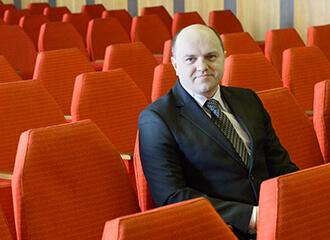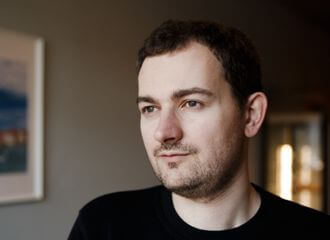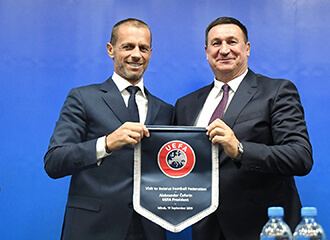На русском языке:
«Народны дэпутат» о благодарности Тихановской беларусскому чиновнику
На беларускай мове:
«Народны дэпутат» пра падзяку Ціханоўскай беларускаму чыноўніку
«Narodny Deputat» telegram channel published a post about the fact that Tsikhanouskaya thanked a Belarusian official, and explained what it means. We quote the post unchanged.
A few days ago, an attentive subscriber noted quite an interesting fact: Sviatlana Tsikhanouskaya’s gratitude to a Belarusian official.
A 13-year-old boy saved three sisters from fire in the Malarytski district, Brest Region. The head of the Regional Executive Committee Batsenko wrote on his Facebook page: «Bogdan and his elder sister are in hospital at the moment. Their condition is stable. I will take this family under my personal control. That’s it. Heroes are among us. Bogdan, I’m proud of you.»
Tsikhanouskaya’s reaction was: «I express my support to Bogdan’s family and admiration for his deed… I also support the desire of the head of Malaryta City Executive Committee Mihail Batsenko to help Bogdan’s family. This is a good example of responsibility of a local authorities’ representative.»
A subscriber asked on this, «Do you think this is some kind of new approach?» reminding me of my post about «increasing the brightness of light and multiplying the good.»
I don’t know if this is a new approach, but the step is very fresh and, from my point of view, belated, but correct. In power, no one personally and publicly thanks or praises anyone (although in our case there is no praise, although the proposal is formulated very qualitatively and looks like praise). Inside, this practice of interaction is absent, and in general it is considered vicious under our government and is characterized as the promotion of the official, ostentation and other nonsense.
In fact, a public «thank you» is a sign of a well-developed system of management and established interpersonal contacts. One cannot effectively manage by discounting the merits of subordinates, colleagues, or officials who publicly express themselves in this way.
On the one hand, this is important for the formation of Tsikhanouskaya’s image not only as an opposition leader, but also as a well-known public figure who objectively approaches the system of power: this is what we do not recognize, this is repression, and here is the right and correct decision.
The second is that such a verbal message brings a wedge into the system: envious or illiterate officials may accuse Batsenko of sympathizing with the opposition, there may be a note of distrust, etc. – The system of power is just like that, it seeks to find enemies and traitors always and everywhere.
And sincere gratitude is not enough, the nuts are tightened, there are more and more demands, the time is less, as well as the salaries. Tsikhanouskaya picks up this subtle matter, and if such approaches become a system, spreading to other leaders of the opposition, then I don’t even know how the authorities will deal with it.
After the war, the Soviet authorities were afraid of military commanders and local leaders of partisan brigades, and this fear was due to the fact that the front-line soldiers could turn into atamans who were not under the control of the central government. To raise the credibility of local authorities means to lay not just one, but dozens of time-action mines under the whole vertical of power, which in our country is also centralized. If this was the intention of Tsikhanouskaya’s headquarters, then I see a scenario that will be «very interesting» to watch.


